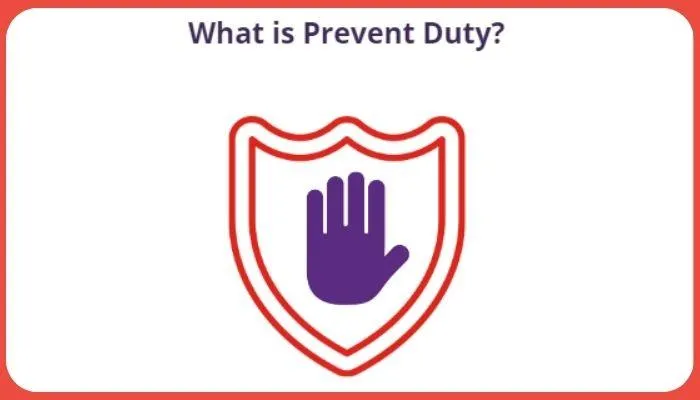Every child's well-being matters.
Best Practice Ideas for Safeguarding Articles
Quick Access

What is meant by the PREVENT Duty in Early Years?
The UK government's Prevent Duty is part of its counter-terrorism strategy, aimed at reducing the risk of individuals being drawn into terrorism.
Since 2015, this duty has been a legal requirement for all education providers, including those in early years. It highlights safeguarding practices designed to prevent children from being exposed to extremist ideologies that could lead to radicalisation.
For early years settings, Prevent Duty integrates closely with existing safeguarding obligations. Educators and staff should be trained to recognise early signs of vulnerability to radicalisation and understand how to respond.
This involves monitoring for behavioural changes or expressions of extremist ideas, whether in children or, more commonly in early years, among parents or family members.
If a concern arises, educators report it through standard safeguarding channels, such as the Designated Safeguarding Lead (DSL).
The DSL may then consult the local Prevent team, which can offer further guidance or connect families to supportive programs like the Channel Programme. This program provides early intervention and supports individuals at risk without criminalising them, reinforcing British values and community integration.
Promoting British values—such as democracy, respect, and individual liberty—plays a significant role in prevention efforts. By fostering an inclusive environment and helping young children develop a sense of belonging and respect for diverse communities, early years educators help reduce vulnerability to extremist influences. Moreover, training for staff emphasises recognising and addressing risk factors such as social isolation or exposure to radicalised family members, which could otherwise lead to children being at risk.
For more comprehensive guidance on implementing Prevent Duty in early years settings, resources are available through government websites and local authorities, providing templates and further details on policy compliance and risk assessment.
AUTHOR:- Iona has nearly 10 years of experience supporting nurseries and childminders in curriculum planning, leadership, and safeguarding. Her writing is informed by public information and sector insight, aiming to provide accessible, practical support for professionals working with children. She is part of the On the Button team, helping deliver Well-being, Safeguarding and Complaint Management Software that empowers practitioners to identify concerns early and act confidently.
On the Button provides innovative software tailored to the needs of the early years sector, with a strong focus on EYFS well-being and early years safeguarding. Our tools help senior practitioners to confidently track concerns, maintain robust records, and respond effectively — all while meeting statutory guidance. From early years complaint management to team-wide safeguarding alerts, our platform puts children's safety and emotional health first.
Quick Access

What is meant by the PREVENT Duty in Early Years?
The UK government's Prevent Duty is part of its counter-terrorism strategy, aimed at reducing the risk of individuals being drawn into terrorism.
Since 2015, this duty has been a legal requirement for all education providers, including those in early years. It highlights safeguarding practices designed to prevent children from being exposed to extremist ideologies that could lead to radicalisation.
For early years settings, Prevent Duty integrates closely with existing safeguarding obligations. Educators and staff should be trained to recognise early signs of vulnerability to radicalisation and understand how to respond.
This involves monitoring for behavioural changes or expressions of extremist ideas, whether in children or, more commonly in early years, among parents or family members.
If a concern arises, educators report it through standard safeguarding channels, such as the Designated Safeguarding Lead (DSL).
The DSL may then consult the local Prevent team, which can offer further guidance or connect families to supportive programs like the Channel Programme. This program provides early intervention and supports individuals at risk without criminalising them, reinforcing British values and community integration.
Promoting British values—such as democracy, respect, and individual liberty—plays a significant role in prevention efforts. By fostering an inclusive environment and helping young children develop a sense of belonging and respect for diverse communities, early years educators help reduce vulnerability to extremist influences. Moreover, training for staff emphasises recognising and addressing risk factors such as social isolation or exposure to radicalised family members, which could otherwise lead to children being at risk.
For more comprehensive guidance on implementing Prevent Duty in early years settings, resources are available through government websites and local authorities, providing templates and further details on policy compliance and risk assessment.
AUTHOR:- Iona has nearly 10 years of experience supporting nurseries and childminders in curriculum planning, leadership, and safeguarding. Her writing is informed by public information and sector insight, aiming to provide accessible, practical support for professionals working with children. She is part of the On the Button team, helping deliver Well-being, Safeguarding and Complaint Management Software that empowers practitioners to identify concerns early and act confidently.
On the Button provides innovative software tailored to the needs of the early years sector, with a strong focus on EYFS well-being and early years safeguarding. Our tools help senior practitioners to confidently track concerns, maintain robust records, and respond effectively — all while meeting statutory guidance. From early years complaint management to team-wide safeguarding alerts, our platform puts children's safety and emotional health first.

What is meant by the PREVENT Duty in Early Years?
The UK government's Prevent Duty is part of its counter-terrorism strategy, aimed at reducing the risk of individuals being drawn into terrorism.
Since 2015, this duty has been a legal requirement for all education providers, including those in early years. It highlights safeguarding practices designed to prevent children from being exposed to extremist ideologies that could lead to radicalisation.
For early years settings, Prevent Duty integrates closely with existing safeguarding obligations. Educators and staff should be trained to recognise early signs of vulnerability to radicalisation and understand how to respond.
This involves monitoring for behavioural changes or expressions of extremist ideas, whether in children or, more commonly in early years, among parents or family members.
If a concern arises, educators report it through standard safeguarding channels, such as the Designated Safeguarding Lead (DSL).
The DSL may then consult the local Prevent team, which can offer further guidance or connect families to supportive programs like the Channel Programme. This program provides early intervention and supports individuals at risk without criminalising them, reinforcing British values and community integration.
Promoting British values—such as democracy, respect, and individual liberty—plays a significant role in prevention efforts. By fostering an inclusive environment and helping young children develop a sense of belonging and respect for diverse communities, early years educators help reduce vulnerability to extremist influences. Moreover, training for staff emphasises recognising and addressing risk factors such as social isolation or exposure to radicalised family members, which could otherwise lead to children being at risk.
For more comprehensive guidance on implementing Prevent Duty in early years settings, resources are available through government websites and local authorities, providing templates and further details on policy compliance and risk assessment.
AUTHOR:- Iona has nearly 10 years of experience supporting nurseries and childminders in curriculum planning, leadership, and safeguarding. Her writing is informed by public information and sector insight, aiming to provide accessible, practical support for professionals working with children. She is part of the On the Button team, helping deliver Well-being, Safeguarding and Complaint Management Software that empowers practitioners to identify concerns early and act confidently.
On the Button provides innovative software tailored to the needs of the early years sector, with a strong focus on EYFS well-being and early years safeguarding. Our tools help senior practitioners to confidently track concerns, maintain robust records, and respond effectively — all while meeting statutory guidance. From early years complaint management to team-wide safeguarding alerts, our platform puts children's safety and emotional health first.
Quality Early Years Ltd.,
Dickens House,
Guithavon Street,
Witham, Essex,
England, CM8 1BJ
© Quality Early Years Ltd 2025

Find On the Button
on Social Media

